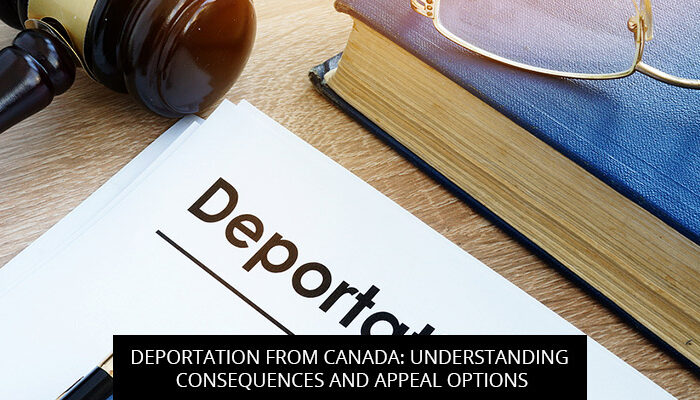
If you have been accused of a crime, the best approach to secure yourself is to hire a criminal defence lawyer to assist with your case.
If you have been charged with a crime, there are numerous court appearances that usually take place prior to the final trial and/or sentencing hearing.
One of the most intricate pre-trial court appearances is the “preliminary inquiry”. It is pertinent to note that not every charge accords the accused a preliminary inquiry.
The option of Preliminary inquiry is only available where an accused has been charged with an indictable offense which is punishable by fourteen years imprisonment or more (an indictable offense is one that is more serious in nature, for e.g.: Murder, robbery, aggravated assault, trafficking etc.).
How Does A Preliminary Inquiry Work?
- Request made for commencing Preliminary Inquiry
Prior to the start of preliminary inquiry, a formal request is made by the Crown or defence side to initiate a preliminary inquiry as per under subsection 536(4) or 536.1(3) of Criminal Code of Canada (CC).
- Submission of Statement of Issues and List of Witnesses
Under section 536.3 of CC, the requesting party is required to submit a statement of issues and List of Witnesses. This requirement maps out the evidence to be heard at the hearing as well as the witnesses to be testified.
- Hearing is scheduled
Then, a focus hearing is scheduled for the purpose of evaluating the issues. Focus hearings help in clarifying the issues and testimony of the witnesses. Moreover, if any part of the cross-examination is abusive, then the judges are required to cease that particular part of questioning in the first place.
- End of a Hearing
At the end of preliminary hearing, if the judge thinks there is no reasonable evidence, then the accused is not placed on trial and will not have a criminal record for the particular case.
What If More Than One Person Is Accused Of The Same Crime?
In case there are more than one accused for an indictable offence, there are slightly different conditions that have to be met.
Primarily, one of the accused requests a preliminary inquiry and all the other co-accused are required to attend the hearing.
Separate Inquiry By Submitting A Severance Application
The court can also agree to hear the cases of the co-accused separately through a severance application. For a severance application to proceed, the applicant (the accused) must satisfy the court that the joint hearing with the co-accused might prejudice his/her right to fair hearing or the accused proves there’s zero or little public interest if he/she is tried separately.
After the approval of severance application, the accused is not required to go to the preliminary inquiry with the other co-accused.
Purpose Of The Preliminary Inquiry
Generally, there are two purposes for conducting a preliminary inquiry.
- To get rid of the cases from the criminal process which do not have admissible evidence to justify a trial. Decreasing the possibility of wrongful convictions is the primary purpose of the preliminary inquiry.
- To aid the accused in getting further disclosure of the Crown’s case. This purpose is comparatively less relevant as there are some definite rules surrounding the Crown’ obligation to disclose their evidence to the defence.
However, the discovery of evidence is not the only fundamental objective of preliminary inquiry. It is, undoubtedly, a useful mechanism to question and evaluate witnesses, ultimately helping to decide the case in a timelier fashion.
Test To Move Onto Trial
Since the key purpose of the preliminary inquiry is to evaluate whether there is sufficient evidence to place the accused on a trial, the courts have established a test to answer that question. Their test, as established by Canadian Courts in compliance with section 548 of the Criminal Code of Canada, is: is there sufficient evidence upon which a reasonable and appropriately instructed jury could reach a verdict of guilty?
The preliminary inquiry judge is not deciding guilt or innocence but rather looking at the evidence and deciding that if the evidence is believed – could a jury find the accused guilty. If the answer is yes, a trial is scheduled and if the answer is no the accused would be released.
What Happens At The Preliminary Inquiry?
Here’s how a preliminary inquiry takes place:
The case is presented by the crown and defence. Both sides also have the choice of calling witnesses. Then, the witnesses, nominated by the Crown prosecutor, are cross-examined by the defence lawyer.
The prosecutor only tries to convince the court that there is sufficient evidence for the trial to proceed. At this stage, the prosecutor is not supposed to satisfy the court beyond a reasonable doubt.
When both the parties’ finish presenting their evidence then the judge would decide whether there was sufficient evidence to warrant a trial or not.
Get In Touch With Our Skilled Lawyers
Unquestionably, requesting a preliminary inquiry can be highly strategic consideration for an accused and their defence team. There are numerous factors to contemplate prior to moving forward with the preliminary inquiry. Ayaz Mehdi Professional Corporation has experienced criminal lawyers who can make you aware of your pre-trial options and assist with your case discreetly, effectively and expeditiously as possible.
Disclaimer: Kindly note that sending or receiving information through this site does not establish a solicitor-client relationship. Legal matters are fact-specific, and the law is variably changing. The views expressed and the content provided on this blog are general guidelines and cannot substitute for proper legal advice. Schedule your legal consultation by clicking here: Let’s meet!






